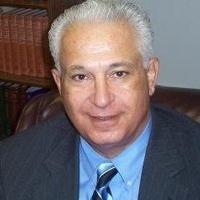Farmington Criminal Lawyer, Michigan
Sponsored Law Firm
-
 x
x

Click For More Info:
-
Boyer Law Group
43805 Van Dyke Avenue Suite A Sterling Heights, MI 48314» view mapAccident & Injury Law Seasoned. Successful. Supportive.
Through detailed research, extensive preparation and a winning strategy developed for each client, our attorneys are fully committed to successfully resolving legal issues.
800-942-1270
Valenton Vulaj
✓ VERIFIEDValenton Vulaj is a practicing lawyer in the state of Michigan. Attorney Vulaj received his J.D. from the University of Detroit Mercy in 2000.
Robert D. Mouradian
✓ VERIFIEDRobert D. Mouradian received his undergraduate degree in political science from the University of Michigan in 1974. Robert D. Mouradian graduated f... (more)
Ezra N. Goldman
✓ VERIFIEDOur law office is more than just a law office. We have immediate access to CPAs, tax and insurance professionals. Our web of contacts includes docto... (more)
Susan Leigh Brown
FREE CONSULTATION
CONTACTFREE CONSULTATION
CONTACTFREE CONSULTATION
CONTACTFREE CONSULTATION
CONTACT William G. Boyer Sterling Heights, MI
William G. Boyer Sterling Heights, MI Practice AreasExpertise
Practice AreasExpertise




